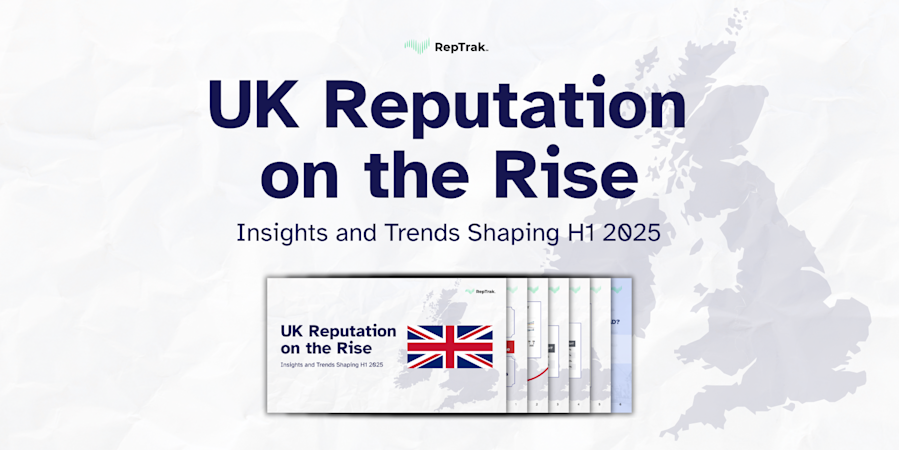COVID-19 in Spain: How the Growing Crisis Impacts Consumer Perceptions
Blog Post09 Apr, 2020
The outbreak of the global COVID-19 pandemic began in China and Italy, but Spain has quickly become the country with the second-most registered deaths in the world. The pandemic’s spread in Spain resulted in a response by government officials and corporations to take care of the population. How successful have they been from a corporate reputation standpoint? After reaching initial conclusions on the impact of the virus on consumer sentiment in Italy and the United States, we have now studied the quickly evolving situation in Spain, as well.
The rapid advance of this pandemic compelled us to carry out our study in two waves. The first round of surveys took place shortly after Spanish authorities declared a State of Emergency (March 18–19, with 410 respondents), while the second took place eight days later, at an even more critical point of the crisis (March 27–29, with 518 respondents).
These two waves were marked by a growing penetration of the virus in Spain, and by more defined reactions from corporations. By the second wave, most large companies in Spain had begun investing in initiatives to mitigate the impact of COVID-19—including large donations, shifting their production to respond to the need of healthcare authorities, flexibilizing payment requirements for credit cards, and so on.
What did we learn from the surveys? Here are three main points:
Economic pessimism is on the rise. Between the first survey and the second, the proportion of respondents who said they believe the coronavirus will push Spain into a long-term economic crisis went from 66% to 74% while disapproval for the government went from 50% to 64%.
Consumers want corporations to prioritize safety and employment. Spanish consumers' most valued corporate measures include those that tangibly prevent the spread of the virus among employees and customers (like masks). They are also looking for companies to avoid massive layoffs despite economic turmoil, and to adapt their production to help the needs of the healthcare authorities.
A company’s concrete actions to mitigate the negative impact of the coronavirus can protect and potentially increase its reputation during a crisis. On average, the Reputation Score among those people aware of an individual company’s efforts around COVID-19 was 19.5 points higher than among those unaware. Using The RepTrak Company’s scale, knowledge of such activity can move a company’s reputation from weak to strong.
From this data and other results of our surveys, we have developed seven key takeaways:
1. Unsurprisingly, negative sentiment is on the rise—but not for everyone
At this point, Spanish consumers view a recession as inevitable. The proportion of respondents that expect long-term economic uncertainty increased by 8% between our two waves, reaching a high of 74%. In parallel, perceptions of the Government are also experiencing a downward trend. In the first wave of this study, 50% of respondents declared that their perception of the Government had declined as a result of the coronavirus crisis; this number increased to 64% by the end of March.
On the other hand, the negativity towards leading authorities sharply contrasts the growing admiration towards healthcare professionals on the front line. By the second wave of fielding, 72% of respondents declared that they have stronger feelings towards doctors and nurses than they did prior to the crisis.
2. Yet, positive feelings towards large companies have increased slightly
During the early stage of coronavirus in Spain, sentiment towards large corporations declined. While not as starkly as perceptions around the Government, 50% of first-wave respondents declared feeling worse about large corporations’ response to COVID-19. Yet, by the second wave, the proportion of respondents that felt worse towards companies dropped to just 37%, with 20% of respondents stating that their feelings had improved. By the second wave of research, we observe a larger perception gap between how consumers judge the Spanish Government and the corporate world’s reaction to the pandemic.
At the same time, the reach of corporate initiatives towards the pandemic has increased considerably. While during the first wave, Intidex was the only company mentioned unprompted by respondents, by the second wave additional local names like Mercadona, El Corte Inglés, Santander, and Telefónica were top-of-mind among the entities lending a hand in times of trouble.
The early disapproval of large corporations during the first wave is most likely attributed to the fact that companies were slow to act or slow to communicate their commitment.
3. The time to prioritize people over profits is now
In previous studies, we have discussed how COVID-19 has triggered a boost in the importance of Workplace as a reputation driver. In our second wave of research in Spain, the way companies are treating their employees became the single-most important driver, followed by Products & Services. In line with these results, Spanish consumers' most valued corporate measures during COVID-19 include those that tangibly prevent the spreading of the virus among employees and customers (like masks). Also favored are when companies avoid massive layoffs despite economic turmoil and adapt their production to help the needs of the healthcare authorities.
However, respondents are attuned to the fact that companies are operating in difficult contexts and will judge them based on their own financial stability. Spain has a unique set of employment regulations that allow companies to file Temporary Employment Regulation Records (ERTE), authorizing them to lay off employees in critical situations. Interestingly, ERTEs are not always perceived negatively by the local population and can be viewed as mostly acceptable if a company is going through significant financial issues.This legal measure was only viewed as a negative if a company continued to earn profits during March, yet benefited from this regulation without compensating former employees for lost salaries. Spanish consumers ciritize corporations in situations when they are evidently prioritizing profits over people, elevating the importance of corporate leaders to be vocal about the reasoning behind any drastic changes in their workforce.
4. Responding to COVID-19 will protect, and potentially improve, your reputation
We measured the reputation of 10 of the leading Spanish companies with active initiatives aimed at COVID-19 and found that their reputation improves significantly when consumers are informed about what they are doing to help the situation. On average, the Reputation Score among those aware of an individual company’s efforts around COVID-19 was 19.5 points higher than those unaware. Using The RepTrak Company’s scale, this knowledge can move a company’s reputation from weak to strong and can trigger enhanced support from consumers. For example, willingness to recommend a company to family and friends, considering that we are in the middle of a crisis, is 19% among those who are not aware of their initiatives and 49% among those aware.
While shifting the focus from profits to people is necessary to maintain the well-being of the community in times of generalized hardship, our data suggests that doing good is also good for business. Corporate responsibility, with tangible benefits to employees and to the safety of the broad population, can mitigate the impact of COVID-19 and the reputational impact this crisis can have on corporations.
5. Companies must take care of their employees
In this new environment, companies will be judged based on their role as employers. It is imperative for corporations to take preventive measures to avoid contagion among their employees (working remotely, social distancing, protection and hygiene), but it is also key to maintain stability and reduce uncertainty in your work culture. Workers are the ambassadors of your brand, and in the current circumstances, they should receive additional care. Plus, respect for companies that are visibly concerned about their employees is growing.
6. Companies need to invest in Corporate Responsibility, purposefully
It is crucial for companies to become involved in the fight against COVID-19. Some say this is a wartime economy, in which creativity and effort of all sorts are valued and may bring results.
At the beginning of the year, we published the principal social trends that influenced reputation management. The first and most important of these is the need to define a corporate purpose, a strategic plan that differentiates a company in something other than financial performance. Presently, corporate purposes are facing a litmus test: Will we rise to the challenge and “walk the talk?”
7. It’s important to communicate authenticity
What is not known does not build reputation, and, consequently, does not build support towards your company. Although it is important for companies to collaborate in this time of crisis through relief initiatives, it is also important that stakeholders are aware of these actions. Further, if the initiatives of leading companies are known, a virtuous circle is created in which competitors and other companies follow. In other words, it’s not enough just to do the right thing; companies must do and say the right thing.
The monumental reputation and supportive gap between the people who were aware of a company’s initiatives and those who were not demonstrates that it is absolutely essential to communicate what you invest in. Nevertheless, this delicate situation also requires delicacy in tone. Greenwashing, as well as opportunistic and commercial attitudes, should be avoided. Instead, a transparent and informative approach should be taken in which messages focus on the collective over the individual.
We will continue to gauge consumer sentiment in Spain to see how it changes as the COVID-19 situation itself continues to evolve.
Fernando Prado Senior Vice President – Spain & Latin America The RepTrak Company [email protected] @FPradoRepTrak






